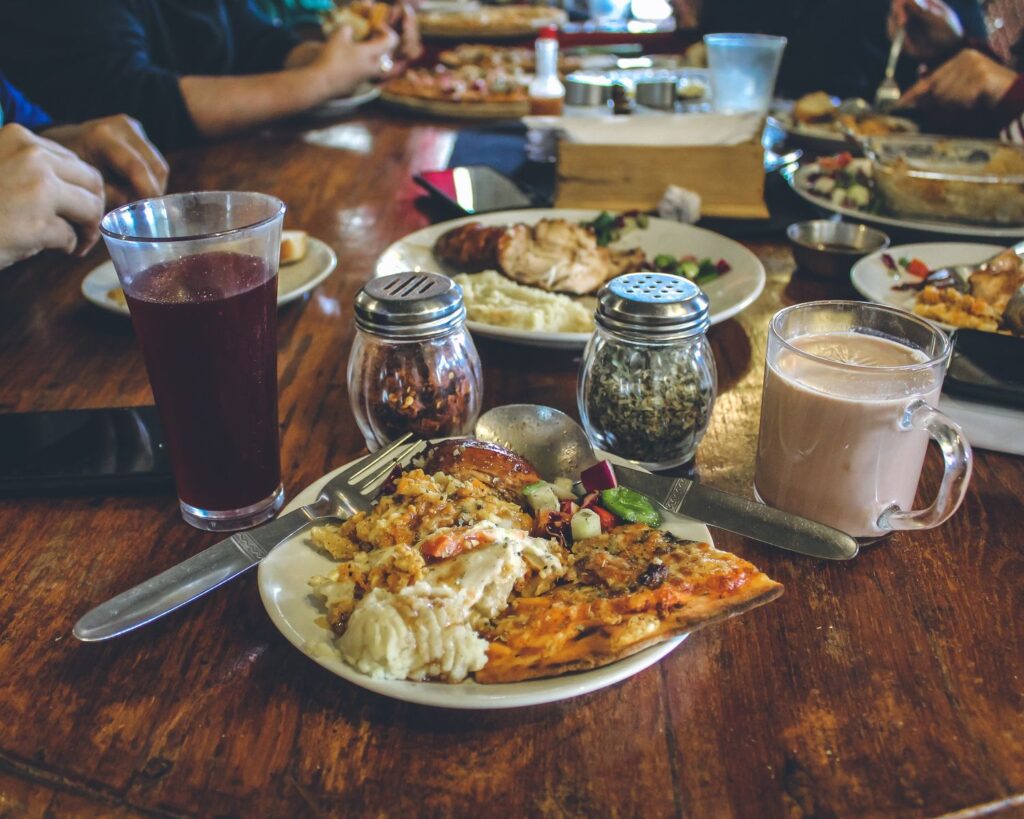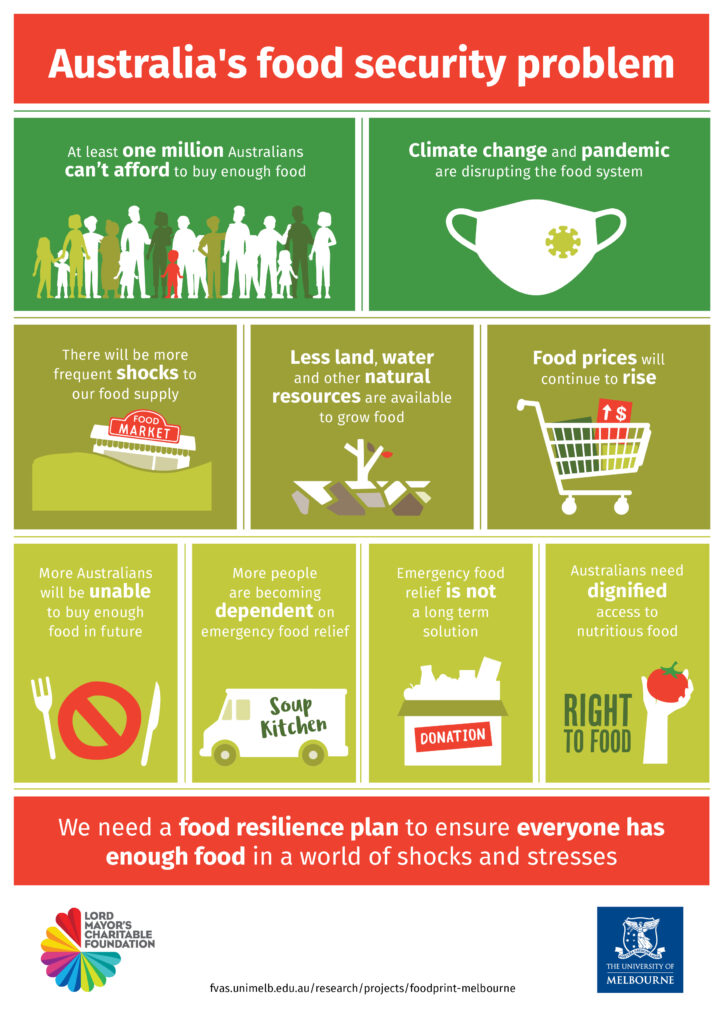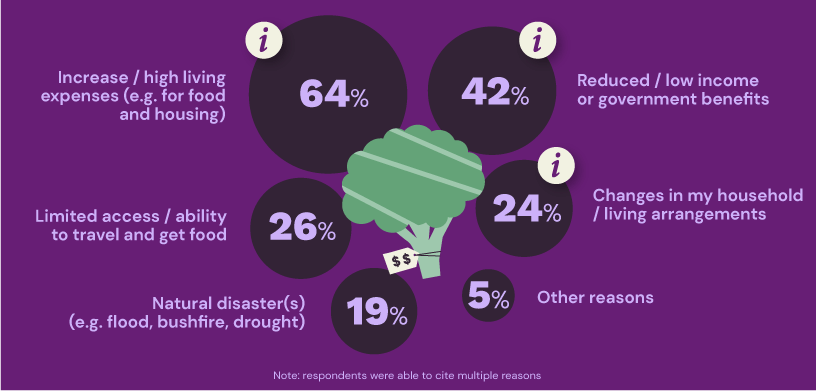Australian Food & Hunger Statistics

In Australia, food insecurity has affected a huge portion of the population, with millions of households struggling to access adequate food. According to the Foodbank Hunger Report for 2024, 3.4 million people must have run out of food in the past year.
Food waste is one of the primary reasons for hunger and food insecurity in the country, especially along socio-economic lines. Australians discard almost 7.6 million tonnes of food each year, equivalent to around 312kg per individual.
All Gone Rubbish Removals help improve awareness and promote responsible waste management through awareness campaigns, community campaigns, and technological initiatives. We sort, segregate, and recycle materials to minimise contributions to landfills, encourage recycling, and instil a culture of environmental responsibility.
The State of Hunger in Australia
Approximately 2 million households (19%) were severely food insecure in the last 12 months. The share of households facing either severe or moderate food insecurity fell from 36% in 2023 to 32% in 2024. This follows a modest improvement in the general economic outlook, with moderate inflation and the cash rate since November 2023. Between 2014-16 and 2020-22, severe food insecurity grew from 2.8% to 3.4%, or about 880,000 people.
Groups more likely to experience food insecurity include lower-income households (under $30,000), those in regional areas and single-parent families. Almost seven out of 10 (69%) single-parent households have been food insecure in the past 12 months, including 41% who have been very food insecure.
In 2024, nearly half of low-income homes have struggled with hunger. Above 870,000 households earning less than $30,000 ($20,200) annually face extreme food insecurity, a 5% increase compared with 2022.

Source: The University of Melbourne
Food Waste and Its Impact
Approximately 70% of food waste (over 7.6 million tonnes each year) is deemed perfectly consumable. This uneaten food – food that could have fed people – costs the Australian economy more than $36.6 billion.
Australian households are a big part of the problem, discarding around 3.1 million tonnes of edible food yearly. This amounts to roughly $8 billion of household food waste. The average Aussie household throws away about $3,800 of food annually.
Food loss and waste contribute to between 8% and 10% of global emissions each year. When food rots inside landfills, it emits methane, a greenhouse gas many times more potent than carbon dioxide.
Here are the most common reasons why most Australian households experience food insecurity:

Source: Food Bank
Key Food Waste Facts
Several factors affect food waste, from production to consumption. These include:
- Incorrect food storage
- Misunderstood dates on food labels
- Buying more than what is needed
- Overproduction
- Quality standards
- Recalled food
- Inadequate packaging
Linking Food Waste and Hunger
Preventing food waste greatly impacts the supply of surplus food that can be donated to people in need. Reducing food waste at the source will allow additional safe and wholesome food to be routed to food banks, soup kitchens and other organisations that aid individuals and families facing food insecurity.
Various food rescue organisations and donation programs operate to reduce food waste and ensure those in need have access to food in Australia. This collection and redistribution of surplus food comes from businesses to charities and community groups — to support vulnerable Australians.
OzHarvest: Established in 2004, OzHarvest is Australia’s pioneering food rescue organisation dedicated to cutting food waste by 2030. OzHarvest collects good quality surplus food from registered businesses and delivers it directly to local charity agencies, free of charge.
SecondBite: This organisation rescues surplus fresh food and redistributes it to community food programs that assist those in need. In 2023, SecondBite saved 25.2 million kilograms of food, enough for over 50 million meals.
Foodbank: This is the biggest hunger relief charity in the country and redistributes food to more than 2,500 charities. As the charity sector’s pantry, Foodbank sources enough food for more than 92 million meals nationally each year, connecting surplus food and groceries with people in need.
FareShare: They rescue, cook and grow food in Melbourne and Brisbane and run programs that package and distribute free, complete meals to charities. In 2024, Brisbane and Melbourne kitchens with FareShare prepared over 2.2 million free, nutritious meals for people in need.
Food For Change: This charity propagates and saves quality food for the purpose of donating to food relief organisations that feed hungry Australians. The organisation has been supplying millions of meals to hungry Australians since 2016. It also works with local food donors and local food relief organisations through IGA to maximise the amount of food rescued throughout Australia.
When you plan your meals, store food correctly, and donate excess food, you can minimise food waste and increase access to surplus food for those who most need it.
Tips to Reduce Food Waste at Home
Do you know that minimising food waste starts at home? These steps can help save you money, help the environment, and conserve resources:
- Planning and shopping: Plan out the week's meals and make a shopping list according to those meals. This prevents impulse purchases and ensures that you only buy what you need.
- Store food correctly: Properly storing produce keeps it fresh longer, maximises freshness and extends shelf life. Put older items at the front of your fridge and pantry to get used first.
- Cooking and preparation: Reuse produce that is no longer supple. You can use the scrapings of bits and pieces of ingredients and leftovers for soups, casseroles, stir-fries and smoothies. By cooking and serving the right amounts, leftovers will be less. Understand the difference between “sell-by,” “use-by”, and “best-by” dates to avoid throwing food away too soon, which usually signifies quality, not safety.
- Compost food scraps: Instead of trashing food scraps, compost them. They’ll make great organic compost for your flowers, trees, and vegetables without the harmful effects of using chemicals.
- Donate excess food: Don’t throw excess food. Instead, give some to your neighbours or take them to food banks where they will be given to charities and homeless people.
Many habits can greatly minimise the number of items you throw away, such as food, and promote a sustainable lifestyle. These habits include mindful consumption, appropriate storage (such as freezing leftovers), creative reuse, and thoughtful decluttering practices. These practices can help lessen waste and create a more organised, sustainable home.
Mindful waste disposal is part of All Gone Rubbish Removals’ services if needed. If you don’t have time or don’t know how to dispose of your food waste, we will take care of it. We provide prompt and professional rubbish removal whenever and wherever you need us.
How All Gone Rubbish Removals Supports Sustainable Choices
From eco-friendly waste recycling options to green office cleanouts, All Gone Rubbish Removals promotes sustainable choices while following the relevant environmental regulations. We minimise the amount of waste in landfills, increase recycling rates, and address countless inappropriately disposed materials.
All Gone Rubbish Removal believes in environmentally safe waste and rubbish disposal, minimising landfill waste through recycling and disposal. They help businesses recycle to reduce waste in landfills. With great expertise in proper waste disposal, we ensure they are handled responsibly and environmentally friendly.
All Gone Rubbish Removals provides same-day rubbish removal services across Sydney, the Central Coast, Gosford, Newcastle, and the Gold Coast. Call us today and book before 2 PM for your area's best-priced same-day rubbish removal service! Don't worry about the lifting; it's on us.
Frequently Asked Questions
1. How can I donate extra food before it goes bad?
You can donate extra food by contacting local organisations, which can help you distribute it to charities and those in need.
2. Does composting help reduce food insecurity?
Yes, composting can aid in addressing food insecurity by enhancing soil quality, boosting agricultural output, and minimising food waste.
3. What are simple ways to avoid overbuying groceries?
Simple strategies, such as planning, mindful shopping and proper food storage, can help you save on groceries and food to minimise waste and cut costs.
4. Are there local programs that accept perishable items?
Yes, definitely. There are a few local programs around Australia that take perishables, such as OzHarvest, Foodbank, and SecondBite.
5. Does All Gone Rubbish Removals handle organic waste separately?
Yes, All Gone Rubbish Removals collects food waste for disposal and conducts waste audits to identify inefficiencies in your organic waste stream.
- Is Fibro Asbestos? Understanding The Difference - July 14, 2025
- Household Hot Water Tank Disposal in Sydney - July 14, 2025
- Garage Clean Out & Clearance Services Sydney - July 14, 2025
